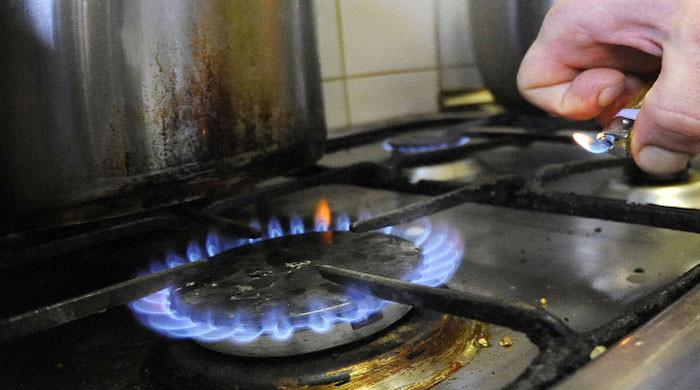Govt to slash health budget by nearly half
National health services ministry will receive only Rs14b in next fiscal year beginning July 1, compared to Rs21.7b this year
June 09, 2022

The federal government is so financially strapped that the current healthcare funding will be nearly halved in the upcoming fiscal year, while new projects will be left with just crumbs, The News reported Thursday.
The national health services ministry will receive only Rs14 billion in the next fiscal year beginning July 1, compared to Rs21.7 billion this year, according to documents from the 2022-23 Public Sector Development Programme (PSDP). This is because the International Monetary Fund (IMF) has imposed stringent conditions on the bailout revival desperately sought by Prime Minister Shehbaz Sharif's administration to fill 'empty' public coffers.
The annual expenditure, which falls far short of the World Health Organisation's target of 6% of gross domestic product (GDP), is earmarked for Islamabad's Pakistan Institute of Medical Sciences (IMS) and Polyclinic, National Institute of Rehabilitation Medicine, National Institute of Health, programmes against tuberculosis, malaria, HIV/AIDS, and other federal health subjects in the post-devolution regime.
According to the next PSDP to be unveiled in the National Assembly tomorrow (Friday), almost 84% of the health budget, i.e., Rs11.727 billion, including a paltry aid of Rs56.58 million, will go to 31 ongoing projects, while only Rs2.272 billion, including Rs44.5 million foreign assistance, will be spent on the new ones, totalling 11.
As for the ongoing health initiatives to be funded next year, the largest amount from the budgetary allocations, i.e. Rs4.5 billion, is meant for the ‘Sehat Sahulat’ Programme Phase-II, a flagship health insurance initiative of the last PTI government to provide free medical treatment to underprivileged segments of society. However, the expenditure is nearly 25% (Rs1.1 billion) less than the current fiscal (Rs5.6 billion).
Following that are Rs2 billion in funds for the establishment of the Federal Government Polyclinic-II in Sector G-11/3, Islamabad; Rs1.393 billion for the upgrade of the Radiology Department at Shaikh Zayed Postgraduate Medical Institute, Lahore; and Rs1 billion for the establishment of a 200-bed Centre of Excellence for Gynaecology and Obstetrics in Rawalpindi.
Other big projects that will receive money in 2022–23 are the purchase of electro-medical equipment for the NIRM (Rs647 million), the building of a 200-bed Accident and Emergency Centre at the Pakistan Institute of Medical Sciences (Rs500 million), and the development of an Integrated Diseases Surveillance and Response System with Public Health Laboratories Network and Workforce Development for Transition of Field Epidemiology and Laboratory Training Programme (Rs100 million).
A look at new health projects to be executed next year shows the largest part of the Rs2.272 billion budget will be spent on the COVID-19 Emergency Response and Ensuring Universal Health Coverage in Islamabad Capital Territory (Rs589 million).
The other major funding in the category includes Rs447 million for strengthening and upgrading the Federal Government Polyclinic Hospital’s Diabetes and Endocrinology Department, Rs300 million for setting up the Infectious Diseases Laboratory, Rs250 million each for the National Health Support Programme and the establishment of a cancer hospital in Islamabad, and Rs108 million for strengthening the Common Management Unit (TB, HIV/AIDS and Malaria) and ensuring an accelerated response to the three diseases.
Experts fear that the massive budget cut will lead to the scaling back of services at health centres, adding to the suffering of the poor. They also say that bureaucratic problems and inefficiency cause money for health care to be lost every year. This, they say, makes the budget allocations have a much smaller effect than planned.
For Geo.tv's latest news, updates and analysis of the Federal Budget 2022-23, visit: https://geo.tv/trending/budget-2022-23











